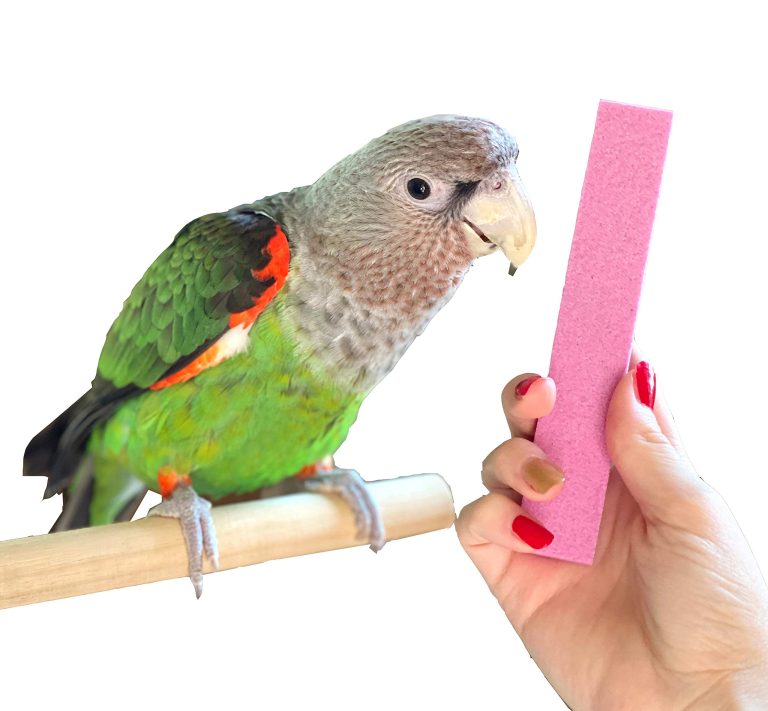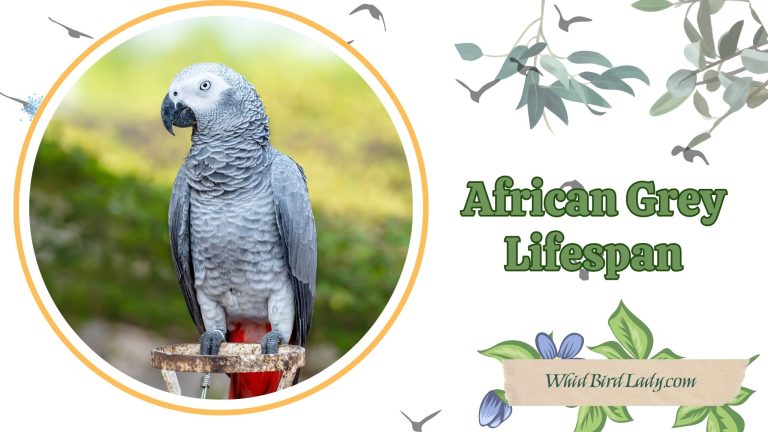How to Train Your African Grey Parrot: Bite-Free in 10 Steps
To train your african grey parrot not to bite, start with positive reinforcement and consistent training. This step-by-step guide focuses on building trust with your bird, understanding the reasons behind biting, and implementing effective techniques to redirect unwanted behavior.
African grey parrots are intelligent and social birds known for their talkative nature and ability to imitate sounds and words. However, they can also be prone to biting their owners or others, which can be a frustrating and concerning behavior for bird owners.
Fortunately, with patience, consistency, and positive reinforcement training techniques, you can train your african grey parrot not to bite. This guide will provide you with a step-by-step process to help you build trust with your bird, understand the reasons behind biting, and effectively redirect unwanted behavior.
Credit: www.thesprucepets.com
Why It’S Important To Train Your African Grey Parrot
Owning an african grey parrot is not just about having a stunning feathered friend; it is also a responsibility. African grey parrots are intelligent, social birds that require mental and physical interaction from their owners. Properly training your african grey can not only enhance their quality of life, but it can also make your life with them more enjoyable.
Here, we will discuss the importance of training for pet owners and the benefits of training for african grey parrots.
Importance Of Training For Pet Owners
Owning a pet, especially a bird, requires a lot of work. Birds need physical and mental stimulation, a clean environment, and proper nutrition. Training your african grey parrot can provide a structured routine for you and your feathered friend. By establishing basic commands and boundaries, you can build a bond with your bird and ensure that they feel secure and happy in their environment.
Training also helps pet owners monitor their parrot’s behaviour to identify any potential health issues early.
Here are some key points to consider:
- Training establishes a structured routine for you and your bird.
- Training allows you to monitor your bird’s behaviour, including early signs of potential health issues.
Benefits Of Training For African Grey Parrot
Training can be fun for both you and your parrot. African grey parrots are intelligent creatures that love a mental challenge. By training your parrot, you can stimulate their mind and provide them with a sense of purpose. In return, you can expect a happier and well-behaved bird.
Training can also improve your parrot’s physical mobility and coordination, which could help with their overall health and well-being.
Here are some key benefits to consider:
- Training stimulates your bird’s mind and provides a sense of purpose.
- Training helps your bird develop physical mobility and coordination, which can improve their overall health.
Training your african grey parrot is a crucial aspect of their care, which benefits both pet and owner. As a pet owner, you will establish a structured routine and monitor your bird’s behaviour, allowing you to identify any potential health issues early.
In contrast, your parrot will have the opportunity to exercise their brain and improve their physical coordination, leading to a happier and healthier life.
Key Components Of Training Your African Grey Parrot
When training your african grey parrot, there are several key components you should consider. These components include consistency, positive reinforcement, and avoiding punishment. By following these steps, you can ensure that the training process is bite-free and effective.
Consistency Is Key
Consistency is a critical component for training your african grey parrot. Birds are creatures of habit and thrive on routine. By keeping training sessions at the same time each day and using the same commands and rewards, you can create a pattern of predictability that your parrot will respond positively to.
Here are some tips for maintaining consistency while training your african grey parrot:
- Develop a consistent training schedule
- Use the same commands and gestures each time
- Reward your parrot consistently for desired behaviors
- Be patient and remain calm during training sessions
Positive Reinforcement
Positive reinforcement is another key component of african grey parrot training. By rewarding desired behaviors, your parrot will be more likely to repeat them in the future. Positive reinforcement can come in the form of praise, treats, or toys.
Here are some tips for incorporating positive reinforcement into your training sessions:
- Use treats that your parrot enjoys and are safe for them to consume
- Be consistent with praise and physical affection
- Use toys and games as rewards
- Do not punish or scold your parrot for unwanted behavior
Avoiding Punishment
One of the most critical components of training your african grey parrot is to avoid punishment. Punishment can cause fear and damage the bond between you and your parrot. Instead, use positive reinforcement techniques to encourage desired behaviors and ignore unwanted ones.
Here are some tips for avoiding punishment during training sessions:
- Ignore unwanted behavior or distract your parrot from it
- Use positive reinforcement to encourage desired behaviors
- Do not physically harm your bird or use harsh language
- Be patient and consistent
By following these important components, you can ensure that your african grey parrot’s training process is effective and bite-free. With consistency, positive reinforcement, and avoidance of punishment, your parrot can learn and thrive!
Step-By-Step Guide To Training Your African Grey Parrot
African grey parrots are intelligent and social creatures that can make wonderful pets. However, just like any other pet, they require proper training and care. Below, we’ll provide you with 10 simple steps to train your african grey parrot in bite-free manner.
Creating Trust And Respect
Before you start training your parrot, it’s essential to establish trust and respect with your feathered friend. African grey parrots are known for being cautious birds, so it’s necessary to create a safe environment and bond with your parrot.
Spending Quality Time With Your Parrot
Spending quality time with your african grey parrot is essential for building a strong relationship with them. You can spend time talking, playing games, and teaching them new tricks or commands. The more time you dedicate to your parrot, the more they will trust and bond with you.
Teaching Basic Commands Such As “Step Up” And “Step Down”
Teaching basic commands such as “step up” and “step down” is vital for the safety of both you and your parrot. These commands can help your parrot to easily move from one place to another and also aid in socialization.
Reward-Based System For Positive Behaviour
Positive reinforcement is the key to training your african grey parrot. Rewarding good behaviour with treats, praises, or toys is an excellent way to encourage your parrot. This method also helps in creating a positive association with the training process.
Understanding Common Behavioural Issues
African grey parrots can exhibit behavioural issues such as biting, screaming, plucking, or feather picking. Understanding these issues and identifying the cause behind them can help in addressing them with proper training.
Identifying Negative Behaviors In Your African Grey Parrot
Being aware of negative behaviours your african grey parrot exhibits will help you react promptly and address the issue through training. Through close observation, you can identify common negative behaviours, and address them accordingly.
Addressing Negative Behaviours Through Training
Training your african grey parrot can help address negative behaviours and encourage positive ones. You can use positive reinforcement to teach your parrot how to react differently, which can help foster a better relationship with them.
Seeking Professional Help When Necessary
If your african grey parrot is exhibiting severe behavioural issues, it may require the help of a professional. Seeking the help of a professional trainer or a veterinarian can help address these issues, and provide customized solutions for your parrot.
Training Your Parrot To Accept Medical Procedures Such As Nail Clippings And Wing Trimming
Regular grooming is essential to keep your african grey parrot healthy. However, it may be challenging to allow medical procedures such as nail clippings or wing trimming. Training your parrot to accept these procedures can help reduce stress and anxiety.
Importance Of Regular Vet Visits
Visiting a veterinarian regularly can help maintain your african grey parrot’s health and detect any issues early. It’s essential to seek the help of a professional who specializes in avian medicine as it can help identify possible health hazards.
Encouraging Socialization With Other Parrots And Humans
African grey parrots are social creatures and require healthy social interactions to maintain their well-being. Encouraging socialization with other parrots and humans can help your parrot develop its social skills and confidences.
Building Confidence In Your African Grey Parrot
Training your african grey parrot can help build their confidence and also help them overcome their fears and anxieties. With consistent training and positive reinforcement, your african grey parrot can become more confident and well-adjusted in their environment.
Importance Of Play In Training
Playtime is essential for the well-being of your african grey parrot. It’s an excellent way for them to utilize their natural instincts and provide them with physical and mental stimulation. Incorporating playtime in their daily routine can also help build a strong bond between you and your parrot.
Encouraging Active Playtime
Encouraging active playtime can help your african grey parrot stay active and healthy. Providing them with toys and games that require physical activity encourages them to exercise and promotes their overall well-being.
Teaching Your Parrot To Talk And Whistle
African grey parrots are known for their ability to learn human speech and whistle tunes. With proper training, you can teach your parrot how to speak words or phrases or whistle tunes.
Importance Of Using Positive Reinforcement
Using positive reinforcement is essential for your african grey parrot’s training. Providing rewards for good behaviour encourages your parrot to continue exhibiting that behaviour, while also building a positive association with training.
Preparing For Emergencies Such As Choking Or Injury
Emergencies can happen at any time, and being prepared is crucial. Preparing yourself and your african grey parrot for possible emergencies such as choking or injury can help you respond quickly and efficiently.
Importance Of Staying Calm In Stressful Situations
Staying calm in stressful situations can help ease your african grey parrot’s anxiety and also encourage them to stay calm. Remaining calm can also prevent your parrot from becoming agitated or aggressive.
Importance Of Continuing Training Efforts
Training your african grey parrot should be a continuous process and not a one-time event. Keeping up with training efforts can help reinforce good behaviour and promote a healthy and happier relationship with your parrot.
Advanced Training Techniques And Resources
Lastly, there are advanced training techniques and resources available for training your african grey parrot. These resources can provide you with additional tips and tricks to enhance your training process and build a stronger bond with your feathered friend.
Training your african grey parrot can be a challenging yet rewarding experience. With patience, consistency, and positive reinforcement, you can train your parrot in a bite-free manner, promoting a healthier and happier relationship.
Frequently Asked Questions On How To Train Your African Grey Parrot Not To Bite: A Step-By-Step Guide
Can African Grey Parrots Be Trained Not To Bite?
Yes, african grey parrots can be trained not to bite through positive reinforcement and consistent training methods. It is important to understand the reason behind the biting behavior and address it accordingly.
How Long Does It Take To Train An African Grey Parrot?
The training period can vary depending on the parrot’s age, personality, and previous experiences with biting. However, with consistent and patient effort, it can take a few weeks to a few months to train an african grey parrot not to bite.
What Are Some Common Reasons For African Grey Parrots To Bite?
African grey parrots may bite due to fear, territorial aggression, or lack of socialization. They may also bite if they are protecting their eggs or young, or if they are feeling threatened or stressed.
What Are Some Positive Reinforcement Techniques For Training African Grey Parrots?
Positive reinforcement techniques for training african grey parrots can include offering treats, verbal praise, and clicker training. It is important to reward good behavior consistently and avoid punishing the bird for biting.
Should I Seek Professional Help When Training My African Grey Parrot Not To Bite?
If you are having difficulty training your african grey parrot not to bite, it may be beneficial to seek the advice of a professional bird trainer or behaviorist. They can provide specialized training techniques and advice based on your individual parrot’s needs.
Conclusion
Training your african grey parrot not to bite is a process that requires patience, consistency, and a lot of positive reinforcement. Remember to start slow and gradually build up the level of interaction, always watching for cues like body language and vocalization that could indicate your bird is feeling uncomfortable.
Additionally, never use punishment as a way to correct unwanted behavior, as this can cause even more aggression and damage the bond between you and your bird. With the right techniques and approach, you can teach your african grey to be a friendly, social, and well-adjusted companion for years to come.
So, take your time and enjoy the journey of creating a loving relationship with your feathered friend.


:strip_icc()/cropped-image-of-woman-stroking-african-grey-parrot-726881403-8965fb80aa2d4928a35bcbf8c214d4b8.jpg)





